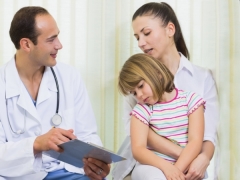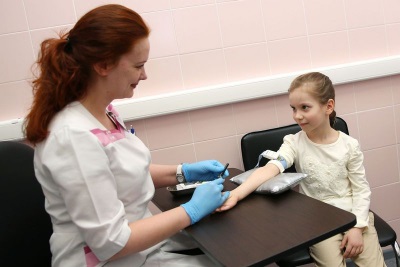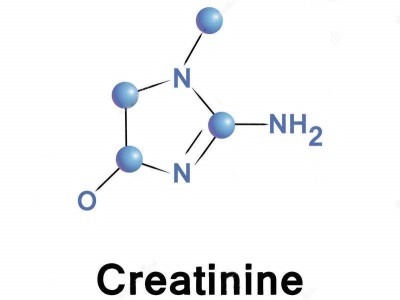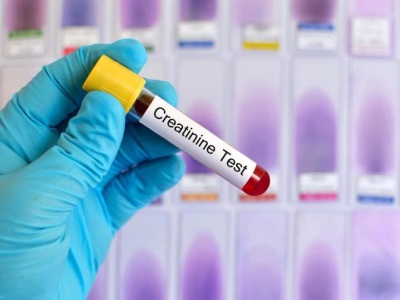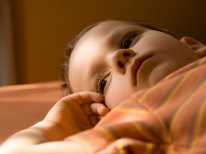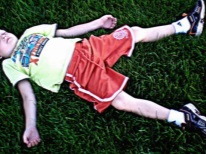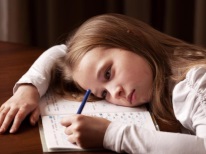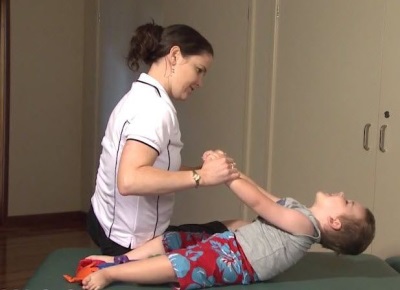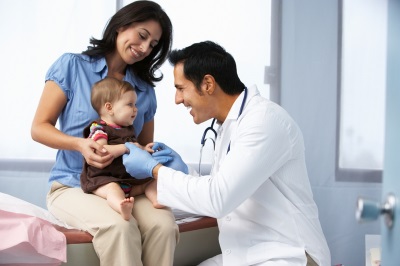Norm of creatinine in the blood of children
To assess the health of the child, he is assigned to various tests, among which there is a biochemical. One of its indicators is creatinine level. Evaluation of this compound, which is formed during metabolic processes in the muscles, is very important for the diagnosis of kidney function. What level of creatinine is normal for children and what reasons may cause it to change?
Norm in children
Creatinine is a substance that is formed in the muscle tissue of a child during the breakdown of creatine phosphate, a compound needed for metabolism and muscle contraction. If the child is healthy, the concentration of creatinine in his body will be stable, and his level is determined by the amount of muscle mass.
Normally, a child’s body younger than one year old has creatinine in a concentration of 18 to 35 micromolar per liter of blood. At the age of over one year, the normal level of creatinine in the blood ranges from 27 to 62 µmol / L. As the child grows, the concentration of creatinine gradually increases, which is associated with a set of muscle mass, reaching a normal rate of 35-110 mmol / l.
Creatinine increase
Since the release of creatinine from the child’s body occurs in the urine, an elevated level of such a substance is often caused by impaired kidney function (when problems arise with the filtration of urine). When a doctor sees high creatinine in the form of a child’s biochemical blood test, he first of all thinks about worsening of the excretory function.
Since creatinine formation is dependent on muscle metabolism, an excessively high blood level may also indicate muscle problems, such as muscle atrophy, high exertion, or muscle damage in injuries.
Increased creatinine concentration is characteristic for:
- Acute or chronic pathologies of the kidneys - glomerulonephritis, nephropathy, polycystic, pyelonephritis, urolithiasis, amyloidosis, and others.
- Heart failure.
- Fasting
- Thyrotoxicosis or acromegaly.
- Increased sports loads.
- Gangrene or extensive burns.
- Injuries to muscle tissue.
- Radiation damage.
- The use of certain medications (nonsteroidal anti-inflammatory drugs, antibiotics, barbiturates, salicylates, and others).
- Dehydration of the body.
- Excessive consumption of protein products.
- Severe internal bleeding.
- Septic shock.
With high creatinine, the child may complain of back pain, increased fatigue, poor appetite, nausea. If the cause of the increase in creatinine is kidney disease, babies will notice a decrease in diuresis, edema, and increased blood pressure. In the analysis of urine protein or blood cells will be detected.
Creatinine Reduction
Reducing the concentration of creatinine in the blood is associated with muscle dystrophy, because if the muscle mass has decreased, this compound will be formed in the muscle tissue during muscle contractions in a smaller amount. Low creatinine is also characteristic of hyperhydration, severe liver disease, fasting and inadequate intake of protein foods.
What to do when changing the level of creatinine in a child
If the biochemical blood test of the baby showed elevated or low creatinine, you should consult with the pediatrician.
Only after a complete examination (examination, collection of anamnesis, additional tests) will it be possible to determine the cause of high or too low creatinine concentration, after which the doctor will prescribe the correct treatment:
- If the creatinine level is changed slightly due to eating or drinking disorders, the pediatrician will advise you to revise the diet (for example, limit meat dishes with an excess of meat in the diet or add them to the vegetarian menu).
- With an increase in creatinine due to kidney disease, a special treatment is prescribed to the child, including, depending on the pathology, diuretics, antibiotics and other drugs.
- If high creatinine is associated with muscle injury or burns, the child will be referred to a traumatologist for treatment depending on the severity of the injury.
- In the case when an elevated creatinine level is caused by taking medications, the drugs are canceled, and detoxification treatment is prescribed to the child.
